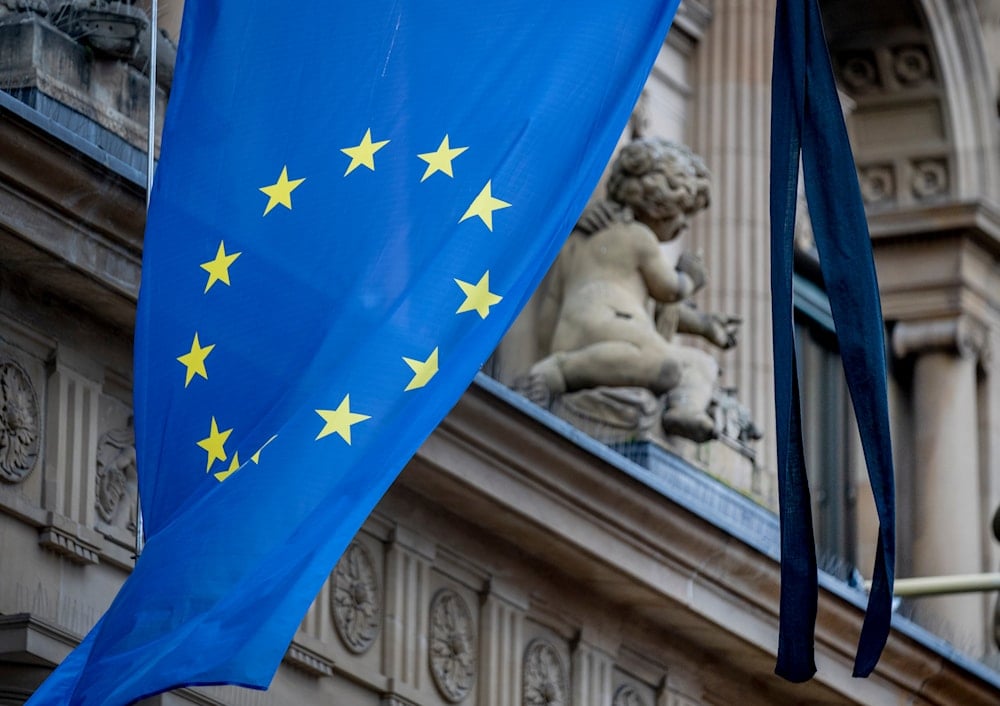EU fears Trump may reverse Biden's sanctions on Russia: Reports
The European Union is reviewing hundreds of Biden's executive orders due to concerns that Trump may reverse them.
-

Black ribbons are fixed to the European flag at the stock market in Frankfurt, Germany, on February 24, 2022. (AP)
EU officials are concerned that US President-elect Donald Trump might undo the executive orders issued by outgoing President Joe Biden that imposed sanctions on Russia once he assumes office, according to a Financial Times (FT) report on Friday, citing informed sources.
In the summer, the European Commission established a team of senior officials to examine Biden's executive orders on Russia sanctions, trade, and cybersecurity, aiming to assess how their removal could affect EU policy.
As per the report, EU officials hope to use these sanctions as leverage in potential negotiations with Moscow over a ceasefire in Ukraine.
The EU acknowledges the possibility that Trump could reverse certain key measures solely because they were introduced by Biden, FT reported, noting that it is typical for a new president to alter existing orders shortly after taking office, as executive orders can be issued and undone at any time.
It is worth mentioning that when Trump assumed office in 2017, he reversed his predecessor Barack Obama's "thaw" in relations with Cuba and withdrew the US from the Paris climate agreement. A year later, he also pulled the US out of the nuclear deal with Iran.
Since the NATO-led war in Ukraine began in February 2022, the EU has imposed 15 sanction packages on Russia. However, instead of weakening Russia, Western sanctions have led to rising electricity, fuel, and food prices in Europe and the US.
That said, the Russian government asserts that the West lacks the courage to acknowledge the failure of its sanctions policy. President Vladimir Putin argues that the West's long-term strategy is to contain and weaken Russia, regardless of the harm it causes to the global economy.
EU passes 15th anti-Russia sanction package
Late last month, the European Union approved its 15th package of sanctions against Russia, imposing stricter measures targeting Chinese entities and additional vessels from Moscow's "shadow fleet", according to a statement from the EU Commission on December 17.
The new sanctions included 52 vessels which attempted to bypass Western restrictions to transport oil, arms, and grains, bringing the total number of listed vessels to 79.
The EU began sanctioning ships earlier last year amid a rise in vessels transporting goods not regulated or insured by traditional Western suppliers. This included ships that allegedly delivered ammunition from the DPRK to Russia.
Of the 52 vessels newly sanctioned, 33 were targeted for transporting crude oil or petroleum products from or to Russia, raising the total number of sanctioned vessels for carrying oil to 43.
Furthermore, 84 new entities and individuals were sanctioned, seven of whom are Chinese. "Namely one individual and two entities facilitating the circumvention of EU sanctions, and four entities supplying sensitive drone components and microelectronic components to the Russian military," the statement said regarding the Chinese listings.

 3 Min Read
3 Min Read









